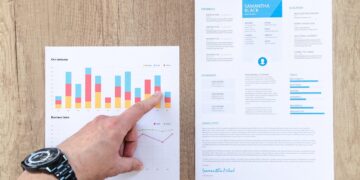Mastering Income Tax: Essential Guidelines for Efficient Filing
Filing income tax returns is a duty that every eligible taxpayer must fulfill, but it often carries a reputation for being daunting and complex. However, with clear guidelines and a strategic approach, you can master the art of efficient income tax filing. This article provides essential advice, answers common questions, and outlines best practices to help you navigate the maze of income tax rules with ease.
Understanding the Basics of Income Tax
Before diving into the filing process, it’s crucial to have a firm grasp on the basics. Income tax is a tax levied by the government on the income generated by businesses and individuals within their jurisdiction. Understanding your specific obligations depends on various factors, including your income level, the source of your income, and your filing status.
Knowledge of important tax terms such as tax brackets, deductions, and credits can significantly ease the filing process. Tax brackets indicate the rate at which your income will be taxed, while deductions and credits can reduce your taxable income and overall tax liability, respectively.
Preparing for Tax Season
Efficient tax filing starts with preparation. Gather all necessary documentation such as your W-2 forms, 1099s, receipts for deductible expenses, and records of any credits you plan to claim. This will help streamline the process and prevent delays. Using a checklist can ensure you don’t miss any important documents.
Digital Tools and Resources
Consider utilizing digital tools for tax preparation. Software like TurboTax or H&R Block offers guided tax preparation that simplifies the process and helps prevent errors. Additionally, the IRS offers resources through its official website, including a tax withholding estimator and a directory of federal tax return preparers.
Filing Your Tax Return
Filing your tax return accurately is crucial. Decide whether you’ll do it yourself or hire a professional. If your financial situation is complex, consulting with an accountant or a tax advisor might be beneficial.
Choosing the Correct Filing Status
Your filing status affects your tax bracket and potential deductions. The major categories include Single, Married Filing Jointly, Married Filing Separately, Head of Household, and Qualifying Widow(er) with Dependent Child. Choose the one that accurately represents your household situation.
Maximizing Deductions and Credits
To reduce your tax liability, take full advantage of eligible tax deductions like charitable donations, medical expenses, and business expenses for freelancers. Tax credits such as the Earned Income Tax Credit (EITC), education credits, or energy efficiency credits can also provide substantial savings.
Common Filing Errors to Avoid
Errors can delay your refund or result in IRS penalties. Common mistakes include incorrect social security numbers, miscalculations, and overlooking income reported to the IRS. Ensure every piece of information on your tax return is accurate and confirmed.
Navigating Audits and Adjustments
If selected for an audit, the key is not to panic. Keep accurate records and receipts throughout the year to support your tax returns. Be honest and cooperative with the IRS, and consider seeking professional help to navigate the audit process efficiently.
Planning Ahead for Next Tax Season
Proactive tax planning can save you a lot of stress. Consider making estimated tax payments throughout the year if you are self-employed or do not have taxes withheld. Adjust your withholding at your job if you consistently owe money or receive large refunds.
Utilizing Tax Refunds Wisely
A tax refund offers a great opportunity to improve your financial situation. Consider using it to pay down debts, save for future goals like education or retirement, or invest back into your business.
Seeking Professional Advice
If tax filing seems overwhelming, professional advice might be a worthwhile investment. Certified Public Accountants (CPAs) and Enrolled Agents (EAs) can provide guidance tailored to your specific financial situation and help you maximize your tax returns.
Conclusion
Mastering the art of efficient tax filing requires understanding the basics, preparing adequately, and staying informed about changes in tax laws. By following these guidelines, you can ensure a smooth tax filing process and potentially increase your financial savings. Remember, a proactive approach is key to tax success!
By embracing these practical tips and keeping abreast of current tax regulations, you can achieve a stress-free tax season and make informed decisions that will benefit your financial health in the long run.
Maintaining Continuous Learning
Finally, tax laws change frequently. Stay updated by subscribing to tax-related publications, using the IRS’s official website, or attending tax planning seminars. This ongoing education will help you remain efficient in your tax filings year after year.



























































